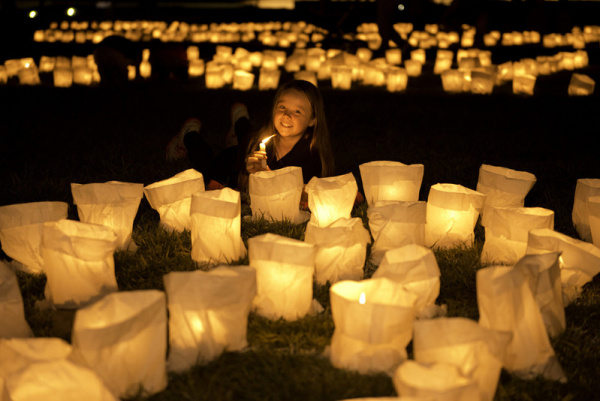
The purpose of Earth Hour is to raise awareness of the climate crisis
- Culture
In celebration of WWF Earth Hour 2022
Our actions today, can change our tomorrow
The climate crisis has given us all a renewed appreciation for our planet’s needs, and while we recognise it can sometimes feel like we’re inundated with so many great causes vying for our collective attention, we also want to advocate for those locally grown ones too. This Saturday 26th March 2022 at 830pm local time, we have a tangible opportunity to promote hope for a better future by participating in WWF Earth Hour. What pioneered in 2007 to rally and inform people around the reality of climate change, has now – fifteen years later – become the largest global grassroots movement for the environment with supporters in over 190 countries and territories.
What is Earth Hour and how did it start?
What started as a humble ‘lights-out’ event in Sydney, has become a groundswell for hundreds of millions of people across the globe supporting strong action on climate change. Essentially Earth Hour is a symbol which invokes action in protecting the planet; it’s a pledge that goes beyond 60 minutes of candlelight.
“The purpose of Earth Hour is to raise awareness of the impacts of climate change and biodiversity loss, and the actions we need to take to tackle these crises,” says Dermot O’Gorman, CEO WWF-Australia. “Switching off lights is a simple way for individuals, families, businesses, councils, schools and landmarks to demonstrate their participation and support for stronger climate change action.”
While they’re not necessarily in the headlines all year round, it’s inspiring to see so many organisations and individuals now working towards one environmental goal. Of course, there’s still so much work to do, however, WWF Australia aims to find new ways to inspire each of us to get involved each year.
“This year’s event aims to shine a light on the importance of having thriving ecosystems that are abundant with wildlife. Climate change is threatening our vital ecosystems like the Great Barrier Reef with coral bleaching events. A significant bleaching event is happening on the Reef right now. These events are devastating for the Great Barrier Reef and the many marine creatures that call it home,” O’Gorman says.


Why should we support WWF Earth Hour?
The impacts of the climate emergency are being felt across the world more than ever before. From catastrophic bushfires and floods, to rising temperatures in our oceans, our planet and unique biodiversity isn’t faring so well. Aside from being a tangible action we can do with a community of like-minded people right across the world, Earth Hour is a conversation starter, a momentum builder, an underlined reminder in our calendars that climate change waits for no one.
This year’s Earth Hour encourages participants to #ShapeOurFuture. It’s a symbolic gesture of course, but beyond this event, WWF is encouraging all Australians to accelerate our transition to renewable energy and to reduce our contribution to global emissions and climate change.
“We still have time to make a difference for the planet we call home, and Australia needs to do its fair share and support those most vulnerable to the impacts of climate change. WWF is working hard with businesses, governments, and communities to encourage this transition and help transform Australia into the world’s leading exporter of clean energy by 2030. If you want to learn the different ways climate change could impact the future of people and nature, there is a great interactive activity on the Earth Hour website called Choose Your Climate Future,” says O’Gorman.
This year, WWF Earth Hour is partnering with Documentary Australia on a virtual film festival. Everyone who signs up to take part in Earth Hour will gain access to several acclaimed documentaries focusing on climate change and the Great Barrier Reef, along with Regenerating Australia, a new short film from Regen Studios, directed by award-winning filmmaker Damon Gameau.
Beyond your WWF Earth Hour pledge
There’s never been a more critical time for us to come together to protect our planet and shape our future, and our collective voices are vitally important. We’re seeing the heartbreaking impacts of climate change in Australia in real time, and it’s making extreme weather events more frequent and unpredictable.
“Beyond Earth Hour, WWF-Australia is also working to reimagine how we solve our biggest environmental challenges. We’ve launched Regenerate Australia, the largest and most innovative wildlife recovery and landscape regeneration programs in Australia’s history. Regenerate Australia is our bold plan to restore wildlife and habitats, accelerate the transition to renewable energy and help to future-proof Australia against climate disasters,” explains O’Gorman.
And while together, we can protect and restore nature for people and the planet, our individual actions today can change our tomorrow. Sure, switching off for Earth Hour is a simple way for people to demonstrate their support for stronger climate action, but that’s just the beginning. We can all make switches in our lives that will help protect our natural ecosystems, and they’re action items we can do today:
- Switch to a solar energy provider
- Switch to a sustainable superannuation provider
- Swap to a planet-friendly mobile plan
- Switch your mode of transportation and reduce your reliance on cars and fossil fuels
- Reduce your food waste
- Switch off your household appliances (laptops, tv’s) when they’re not in use (they’ll consume energy even when they’re on standby)
- Or simply switch to reusable everyday items (trade paper towels for reusable cloths)
Whether this is your first or your fifteenth Earth Hour, the organisation is calling on all Australians to sign up, and act on climate change to #ShapeOurFuture.
RELATED: 5 things you can do now to help tackle climate change
RELATED: 8 climate conscious books that will change your life
